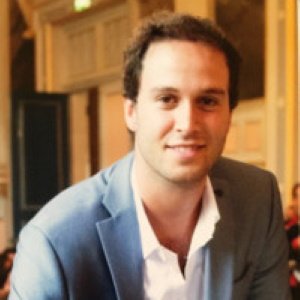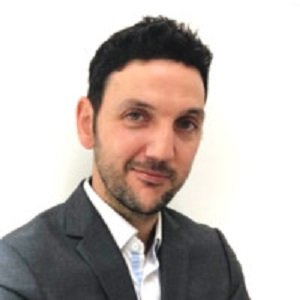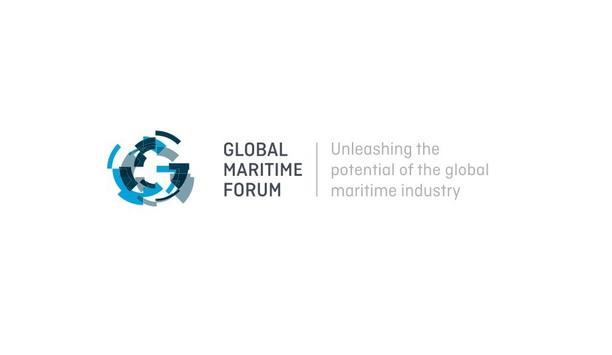ENGIE Solutions - Experts & Thought Leaders
Latest ENGIE Solutions news & announcements
The second North Sea Summit which is being organised by the Belgian Federal Government will have an important industrial outlook since it will be supported by seven Belgian companies and federations. These are the system operators Fluxys and Elia, the hydraulic engineering specialists DEME and Jan De Nul, the Belgian Offshore Platform, the Belgian employers' association for technology companies Agoria, and the Port Oostende. North Sea Summit They will be welcoming the CEOs of 100 top European companies that work in the field of offshore renewable energy on Monday 24 April 2023. During two roundtable discussions, they will join national and European policymakers to discuss the future of the North Sea. The largest coalition ever focusing on energy in the North Sea The European offshore sector can strengthen its position and contribute to a sustainable energy system The North Sea Summit in Ostend will follow in the footsteps of the May 2022 North Sea Summit held in Esbjerg, Denmark, and will aim to make the North Sea the new green power hub of Europe. By working together, accelerating, and focusing on innovation, the European offshore sector can strengthen its leading position across the world and more quickly contribute to the establishment of a more sustainable, affordable, and independent energy system. Addressing energy challenges Following a suggestion from the Belgian Federal Government, the number of countries that were involved in the summit in 2022 is being expanded from 4 (Belgium, the Netherlands, Germany, and Denmark) to 9 (UK, Ireland, France, Norway, and Luxembourg). Along with experts from the offshore industry, the largest coalition ever focusing on energy in the North Sea will thus gather together in Ostend. Discussions with 100 European industry front-runners The North Sea Summit in Ostend will host national and European politicians and, in line with the Belgian Federal Government’s recommendations, 100 CEOs from large industrial companies. The entire offshore renewable energy value chain will therefore be represented at the summit. Guests will include representatives from wind farm developers and investors; representatives from manufacturers of wind turbines, electrolysers, foundations, and other related components; EPC contractors; ship operators; ports; and transmission system operators. The latter are all essential for the building, integration, and operation of offshore renewable energy technology. Political and an industry strand At the start of the conference, a roundtable discussion will be held, which the energy ministers will attend The North Sea Summit will include two strands: a political strand and an industry strand. Representatives from the industry will be hosted at their separate locations. Political leaders will join them at two different points during the day. At the start of the conference, a roundtable discussion will be held, which the energy ministers will attend alongside European Commissioner Kadri Simson. Green hydrogen Additionally, towards the end of the day, the heads of state and governments and Ursula von der Leyen, the President of the European Commission, will join industry representatives for the second time. Together, they will take part in discussions related to supply chains and competitiveness, enhanced European cooperation, grid infrastructure investments, innovation, and the acceleration of offshore renewable energy deployment. Building on the previous summit in Esbjerg, the expansion of green hydrogen will also be discussed. 7 Belgian partners In terms of the timetable for representatives from European industry, the Belgian Government established a partnership with 7 Belgian companies and federations that are making a significant mark on the development of offshore renewable energy in the North Sea and beyond. Their representatives will therefore have a prominent voice during the roundtable discussions. Ports Ports are essential nodes in the supply chains of the offshore wind turbine industry" "Ports are essential nodes in the supply chains of the offshore wind turbine industry," Dirk Declerck, CEO of Port Oostende. "Ports which are key contributors to the diversification of our energy supply and the acceleration of renewable energy should be appropriately recognised and be part of the European transport infrastructure network." Offshore grid “The North Sea will become the engine of Europe’s economy. This will only succeed if we develop the necessary infrastructure for it, which will look different compared with today." "The future offshore grid needs innovations such as hybrid interconnectors (interconnectors that are linked to wind farms) and energy hubs such as the first artificial island we are building in the Belgian North Sea," Chris Peeters, CEO of Elia Group. Electrification and hydrogen system "A balanced system of electrification and hydrogen in the North Sea is the way forward. Hydrogen can also be stored to secure our energy supply in the medium to long term." "In addition, carbon removal technologies are needed to capture unavoidable emissions from industrial processes. The North Sea has many depleted oil and gas reservoirs and aquifers that can be used for the permanent storage of CO2," Pascal De Buck, CEO of Fluxys. Renewable energy The industry is ready to convert as much North Sea wind as possible into renewable energy" "Industry is ready to convert as much North Sea wind as possible into renewable energy for citizens and businesses. We ask the heads of state and governments and the President of the European Commission to accelerate their work on a robust legal framework." "This is necessary to attract investments in the production, transport, and storage of North Sea energy," Annemie Vermeylen, Secretary-general Belgian Offshore Platform. Energy transition "By combining our knowledge, expertise, and ambitions, we as the Belgian and European offshore industry can take on a leading role in accelerating the energy transition, boosting energy security, anchoring the industry in Europe, and strengthening the European lead in offshore technology." "To be successful in this, however, it is important to address urgent needs around the supply chain, human resources, and capacity to successfully realise these ambitions," Bart Steukers, CEO of Agoria. Supply chain "As we face geopolitical instability, the offshore energy sector needs a long-term stable investment environment. We are pioneers and world leaders in our sector, but the European supply chain (wind farm components, installation vessels, etc.) needs to be strengthened so that we have a guaranteed supply of parts at competitive prices." "It is also essential to have a sound compensation mechanism for offshore wind farms that protects both consumers and the supply chain," Julie De Nul, CEO of Jan De Nul Group. Innovative solutions The European offshore energy sector has the know-how and capabilities to help realise the energy transition" “The European offshore energy sector has the know-how and capabilities to help realise the energy transition, make Europe more energy independent, and anchor these activities in Europe." "DEME is a prime example of this and is extremely well positioned to continue providing the innovative solutions needed for this green future. This North Sea Summit is important for highlighting the opportunities, but also the challenges and the framework conditions that need to be addressed to achieve these goals," Luc Vandenbulcke, CEO of DEME Group. Overview of European industry and federations participating in Ostend For Belgium Port Oostende, John Cockerill, DEME, Jan De Nul, Besix, Smulders, Sibelco, Parkwind, Fluxys, Elia, ArcelorMittal, Solvay, Ackermans & van Haaren, North Sea Port, Port of Antwerp-Bruges, Agoria, Belgian Offshore Platform, Virya, and Otary For Denmark Vestas, NKT Group, Ørsted, Energinet, Copenhagen Infrastructure Partners, Port of Esbjerg, Green Power Denmark, Haldor Topsoe, Maersk, Dansk Industri, Dansk Erhverv, Danske Rederier and DSV. For France Nexans, Chantiers de l’Atlantique, Louis Dreyfus Armateurs, Eiffage, Port du Havre, Alstom, Engie, EDF, TotalEnergies, RTE, GRTgaz, EVOLEN, France Énergie Éolienne, McPhy, Port de Saint-Nazaire and Port de Dunkerque. For Germany Linde, Siemens Gamesa, RWE, OGE, GASCADE, 50Hertz, Amprion, BASF, ThyssenKrupp, BWO, EnBW, Iberdrola Germany and KfW. For Ireland XOCEAN, Electricity Supply Board, Mainstream Renewable Power, Simply Blue Group, SuperNode, MaresConnect, EirGrid, Enterprise Ireland, Temporis, and Wind Energy Ireland. For The Netherlands NWEA, IRO, Van Oord, Sif, TenneT, Gasunie, Port of Rotterdam, Eneco, GBM Works and Huisman. For Norway Aibel, Fred. Olsen Windcarrier, Aker Solutions, Equinor, Statkraft, Statnett, NVE, DNV, NorSea/ Wilhelmsen and Norge Mining. For the UK Shell, BP, SSE, National Grid Ventures, ScottishPower, Associated British Ports, Energy UK, Renewables UK, Catalyst Technologies, The Crown Estate, National Gas, and INEOS. European associations WindEurope, Clean Hydrogen Partnership, European Sea Ports Organisation, Europacable, EIB, WWF, and Renewables Grid Initiative.
Maritime green corridor routes between major port hubs where zero-emission solutions are supported and demonstrated have swiftly become recognised as one of the most important tools to aid industry and governments in the decarbonisation of the maritime sector. The consortium brings together Anglo American, Tata Steel, CMB, VUKA Marine, Freeport Saldanha, and ENGIE, convened by the Global Maritime Forum, to assess how zero-emission shipping on the corridor can unlock new opportunities for South Africa’s sustainable development and contribute to a just transition to a zero-emission maritime ecosystem. Maritime supply chain consortium This powerful maritime supply chain consortium of iron ore miners and shippers, the steel industry, ship owners, freeport operators, and energy suppliers will explore full-scope concepts for the South Africa-EU green corridor development. The work will look at bunkering and offtake arrangements, available green fuel supplies, and financial and business model alternatives. Green corridor development Opportunities for South Africa to establish itself as a key player in the global transition The consortium’s initiative to explore the development of the green corridor between South Africa and Europe builds on “Shipping’s Energy Transition: Strategic Opportunities in South Africa,” a report prepared by P4G and the Getting to Zero Coalition. The report identified promising opportunities for South Africa to establish itself as a key player in the global transition to renewable forms of energy and zero-emission shipping. Maritime traffic in Africa Situated along busy international shipping routes, South Africa has the highest volumes of maritime traffic in Africa outside of the Mediterranean region, as well as one of the best-connected port systems on the continent that support the trade of valuable commodities. The development of the green corridor could help drive forward South Africa’s decarbonisation ambitions and serve a range of wider national and international objectives. Decarbonisation strategy revision The initiative to explore the development of the green corridor between South Africa and Europe As the International Maritime Organization prepares to revise its strategy for decarbonisation at the upcoming MEPC 80 meeting. This consortium’s initiative to explore the development of the green corridor between South Africa and Europe is yet another demonstration that the industry is preparing for a rapid shift to zero-emission shipping that leaves no country behind. Shipping decarbonisation pathway “It is fantastic to see this powerful industry consortium come together around a new green corridor with one side in South Africa, particularly as it sends a clear signal of industry action as we go into negotiations at MEPC 80 in July,” says Johannah Christensen, CEO of the Global Maritime Forum. “We hope this project will lay bare a viable shipping decarbonisation pathway towards real-world implementation, generating sustainable growth and business opportunities for South Africa and the region, with synergies for other sectors of the economy.” Cross-industry collaboration This initiative also aligns with Anglo American’s ambition to reach carbon neutrality" “Cross-industry collaboration is the key to shaping a sustainable maritime industry. We are looking forward to joining other industry pioneers in exploring pathways to zero-emission shipping of iron ore between South Africa, where our Kumba mines produce high-quality iron ore, and Europe, where many of our customers are located,” says Peter Whitcutt, CEO of Anglo American’s Marketing business. "An important step toward wider industry decarbonisation, this initiative also aligns with Anglo-American’s ambition to reach carbon neutrality for our controlled ocean freight by 2040." Zero carbon shipping ambition “Tata Steel is committed to zero carbon shipping ambition and our participation in South Africa- Europe green corridor for Iron Ore is yet another step in this direction,” says Ranjan Sinha, Chief Group Shipping at Tata Steel. "We believe in just transition wherein the financial risk of a sustainable supply chain is spread across all stakeholders – the supplier, ports, vessel owners, and buyers. The success of this corridor will likely accelerate the shipping industry’s journey towards decarbonised ocean transportation." Dry bulk vessels CMB has already built various ship types that run on hydrogen and is building dry bulk vessels" “CMB is proud to be part of the Green Corridor initiative between South Africa and Europe. CMB has already built various ship types that run on hydrogen and is building dry bulk vessels powered by ammonia,” says Alexander Saverys, Chief Executive Officer at CMB. "We hope that our track record in the development of green ships will contribute to the success of the consortium and accelerate the deployment of low-carbon vessels on this important trade route." Maritime value chain “VUKA Marine is committed to developing solutions that align shared priorities and shared values across the maritime value chain,” says Andrew Mthembu, Chairman of VUKA Marine. "The Green Corridor concept has the potential to accelerate solutions that can bring environmental priorities to the centre of route development." Zero-emission future We are excited to provide insights into the potential production of green fuels, vessel manufacturing" “As a pioneering special economic zone operator in South Africa, our company is thrilled to join forces with the key players in the industry to support shipping’s transition to a zero-emission future,” says Kaashifah Beukes, CEO of Freeport Saldanha. "With our expertise, we are excited to provide insights into the potential production of green fuels, vessel manufacturing, and servicing in Saldanha Bay." Hydrogen value chain “ENGIE is eager to bring our global expertise and knowledge encompassing the entire hydrogen value chain to accelerate the establishment of the iron ore green corridor between South Africa and Europe,” says Jonathan Debasc, ENGIE’s Managing Director, Flexible Generation & Retail, Africa. "We are committed to building a carbon-neutral world, and renewable hydrogen is key to decarbonising hard-to-abate and energy-intensive industries such as maritime transportation."
The world continues to face the challenges, relating to the COVID-19 pandemic. While the second wave has sustainably inscribed this virus in everyone’s daily lives, ENGIE Solutions offer air treatment solutions to improve Indoor Air Quality (IAQ) in cruise and naval vessels. In order to improve the comfort, health and safety of passengers and crews in public areas and cabins, ENGIE Solutions designs, implements and maintains solutions suited to existing systems, bringing them together in a single ‘Healthy Ship’ offering. Bio-decontamination and IAQ improvement Nowadays, solutions exist for bio-decontamination and IAQ improvement Nowadays, solutions exist for bio-decontamination and IAQ improvement. They require precise HVAC technical expertise, in order to properly size them, so that they can be modulated and adapted within a centralised installation. Aware of the importance of the marine industry in the economic recovery and the need for vessels operators to provide a safe environment before being able to restart operations, ENGIE Solutions provides its expertise, HVAC solutions know-how and overall energy management experience to the maritime sector. effectiveness and performance of platforms This system enables the vessel owners and operators, to ensure the effectiveness and performance of their platforms, while optimising facilities and equipment, and ensuring the safety of all those on board. This offer may take different forms that meet the constraints of the vessel and its operation. Indeed, ENGIE Solutions provide services ranging from the disinfection of equipment (with certification by an independent laboratory) to the design and installation of new equipment and its physical integration into control/command systems. ‘Healthy Ship’ offering The ‘Healthy Ship’ offering is fully modular and fits the actual needs of vessel operators. It can include: The cleaning and sanitisation of air handling and fan coil units. Adapting the design of HVAC-R technical systems to accommodate new plug-and-play anti-virus equipment if required. Examples of such equipment are: definition and integration of separate extraction fans to address specific pollution areas. High efficiency HEPA filters identical to those used in hospital HVAC systems. Integration of UV-C lamps in a new or existing HVAC System. The modification of automation programs to incorporate a virus mode. Other solutions have been analysed (photocatalytic oxidation chambers, electrostatic filtration), both in terms of their effectiveness against viruses and their action on VOCs. Bio-decontamination solutions These bio-decontamination solutions aim to provide a clean and healthy environment on board vessels These bio-decontamination solutions aim to provide a clean and healthy environment on board vessels, by combating the spread of viruses through air conditioning. In a health emergency, these measures also allow the creation of a medical zone where the HVAC operates in ‘safe area’ mode enabling 100% treatment of fresh air, pressure control and, if necessary, absolute filtration. Thus, as the global supplier of HVAC installations and refrigeration equipment, ENGIE Solutions is positioning itself as a key player in the specific treatment of the COVID-19 pandemic. Tailored solutions suited to equipment ENGIE Solutions, the globally renowned in HVAC solutions for marine vessels for over 35 years, provides tailored solutions suited to equipment already in place, meeting the requirements of ship owners and cruise companies (footprint, weight, energy consumption). “ENGIE Solutions is proud to be working more closely than ever with its clients to enable them to reinvent their living and working spaces. Even more, in this period of global pandemic, we are pleased to be able to help create safer and more sustainable environments and to be a direct part of the resumption of the business,” said Pierre Hardouin, the Chief Executive Officer (CEO) of ENGIE Solutions for Industries.





